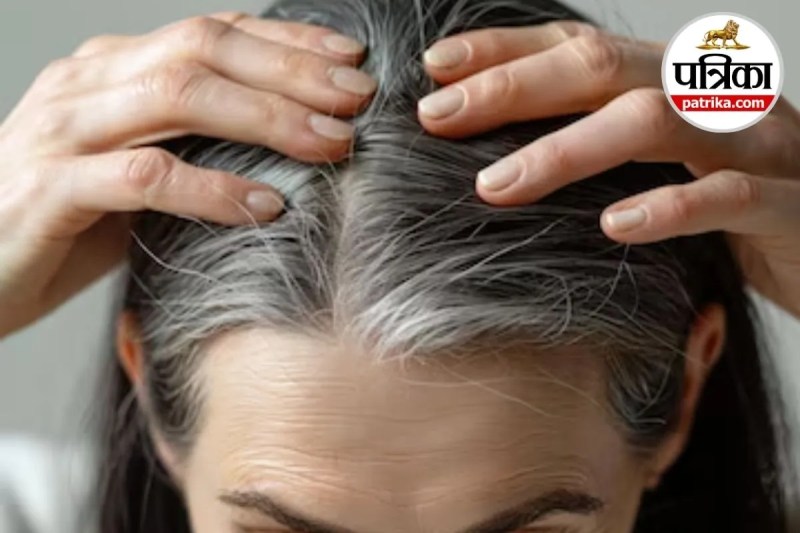
Reasons for early grey hair (Photo source – Freepik)
Premature Grey Hair: Hair turning white is considered a normal sign of ageing, but in today's modern lifestyle, it is no longer just a sign of old age. Even young people aged 25-30 are now facing the problem of premature grey hair. If your hair is turning white early, it could be a sign of an internal problem in the body. It is very important to know about these 5 diseases, which can cause hair to turn white before time. Let's learn about the remedies for these causes.
If someone's hair starts turning white early, it could be a sign of imbalance in the thyroid gland. Thyroid hormones control many bodily processes, including hair growth and colour. In the case of hypothyroidism, metabolism slows down, making hair appear dull, thin, and white.
In some autoimmune diseases, the body's immune system starts attacking its own cells. In diseases like vitiligo, melanin cells in the skin and hair start depleting, leading to white patches and white hair.
Vitamins B12 and iron play a crucial role in delivering nutrition and oxygen to the hair roots. Their deficiency deprives hair follicles of oxygen, causing hair colour to fade. Deficiency of Vitamins B6, D3, Copper, Zinc, and Iron inhibits melanin production. Therefore, instead of changing shampoo or oil, it is important to get a blood test to check vitamin and mineral levels.
Smoking not only harms the lungs but also damages hair colour. Smoking increases free radicals in the body, which cause oxidative damage to cells. Smokers are up to four times more likely to experience premature grey hair. It not only affects melanin but also reduces blood circulation to the hair roots, making hair dry, weak, and thin.
Constant stress is also a major cause of premature grey hair. An increase in cortisol hormone in the body leads to increased oxidative stress, which weakens hair follicles and stops melanin production.
Include green leafy vegetables, nuts, lentils, eggs, milk, seeds, and fruits in your diet. Avoid fast food, excessive tea, coffee, and sugar. Get at least 7 hours of sleep daily and practice yoga and meditation to reduce stress. Maintain a balance of minerals like copper, zinc, selenium, and iron. Get regular blood tests done.
Published on:
31 Oct 2025 02:03 pm
Big News
View AllHealth
Trending
Lifestyle

